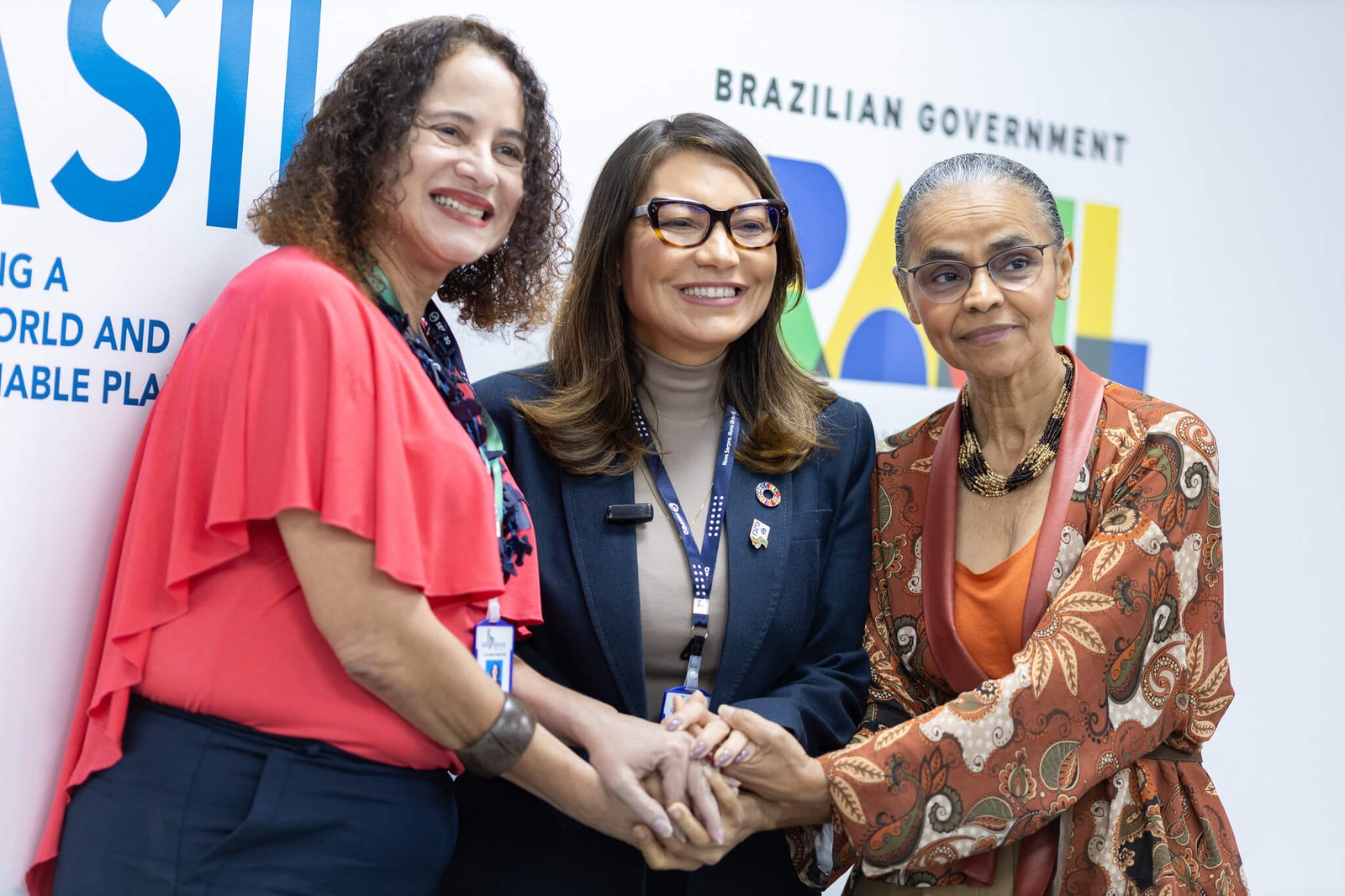Bioeconomy can contribute to a new cycle of prosperity, say ministers and Janja Lula
At the opening of the G20 Global Bioeconomy Initiative meeting, Ministers Marina Silva (MMA) and Luciana Santos (MCTI), along with sociologist and Brasil’s First Lady Janja Lula da Silva, underscored the pivotal role of bioeconomy in addressing climate crises, exemplified by the ongoing challenges in Southern Brasil.

Brazilian ministers Marina Silva, representing the Ministry of the Environment and Climate Change (MMA), Luciana Santos, from the Ministry of Science, Technology, and Information (MCTI), along with sociologist and Brasil’s First Lady Janja Lula da Silva, collectively advocated for the pivotal role of the bioeconomy in safeguarding biodiversity and integrating the wisdom of traditional communities into economic sectors. Their endorsement came during the inaugural session of the G20 Global Bioeconomy Initiative, convened in Brasilia on Wednesday, May 7.
Against the grim backdrop of the climate crisis in Rio Grande do Sul, the bioeconomy was presented as a means to drive sustainable development and combat the severe impacts of climate change. Marina Silva contended that the current juncture calls for a departure from unsustainable models, advocating for a holistic approach to environmental degradation. "Human activity has had, and continues to have, profound effects on the environment. Mere adaptation and mitigation are insufficient; what we truly need is transformation," she emphasized.
"This transformation necessitates profound changes in our unsustainable development models, guiding us toward more resilient approaches to natural resource utilization. Here, the bioeconomy, rooted in the sustainable exploitation of biodiversity, stands poised to significantly contribute to establishing a new cycle of prosperity. This entails the generation of employment and income within our communities, while also aiding in the responsible utilization of biodiversity by economic sectors, with equitable sharing of benefits for indigenous and local communities," remarked Silva.
Marina Silva contended that the current juncture calls for a departure from unsustainable models, advocating for a holistic approach to environmental degradation. "Human activity has had, and continues to have, profound effects on the environment. Mere adaptation and mitigation are insufficient; what we truly need is transformation," she emphasized.
"These increasingly frequent tragedies in Brasil and on all continents, which have more devastating impacts precisely in developing countries, impose on us an even greater responsibility to create more sustainable forms of production which can reduce greenhouse gas emissions and combat climate change," said Minister Luciana Santos.
Bioeconomy and social inclusion
Santos emphasized that Brasil, with its exceptional biodiversity, stands uniquely positioned among nations to foster a circular and sustainable bioeconomy. The minister underscored the pivotal role of knowledge — spanning from the traditional knowledge systems of indigenous peoples to cutting-edge advancements in science and technology — in ensuring that the bioeconomy fosters social inclusion.
"The bioeconomy stands as a pivotal pillar in our national strategy for sustainable development across science, technology, and innovation. We aim to democratize this knowledge and technology, ensuring accessibility to all nations, particularly those in the Global South, through robust mechanisms of technology transfer and the creation of novel sustainable, and innovative products. By fostering widespread capabilities, we can assure the decarbonization of economies, effectively address emerging pandemics, facilitate the energy transition, and combat the pressing challenges of climate change and biodiversity loss," she articulated.
Janja Lula da Silva emphasized her faith in the bioeconomy as a method for revitalizing the regions impacted by the severe rains in Rio Grande do Sul, considering it a "new productive and economic paradigm" warranting exploration.
Window of opportunities
Janja Lula da Silva emphasized her faith in the bioeconomy as a method for revitalizing the regions impacted by the severe rains in Rio Grande do Sul, considering it a "new productive and economic paradigm" warranting exploration. "The bioeconomy is something we really need to focus on now. The younger generations must start studying it and thinking about it. We need to work together, both locally and globally, to seize this opportunity and create fair, sustainable paths forward. That's how we'll address inequalities and combat climate change," she remarked.
The sociologist also highlighted the potential of the bioeconomy for fostering dignified employment, income, and economic knowledge, provided that several conditions are met: a focused planning that ensures the long-term balance between resource use and preservation; the strengthening of the State's capacity for policy formulation; the involvement of marginalized populations, particularly women, and the respect for their traditional knowledge; equitable distribution of benefits and wealth generated; and the integration of bioeconomy concepts and practices into educational systems.
Also present at the table were Ambassador André Corrêa do Lago, Secretary for Climate, Energy, and the Environment at the Ministry of Foreign Affairs (M); and Rodrigo Rollemberg, the newly appointed Secretary for Green Economy, Decarbonization, and Bioindustry at the Ministry of Development, Industry, Trade, and Services (MDIC).